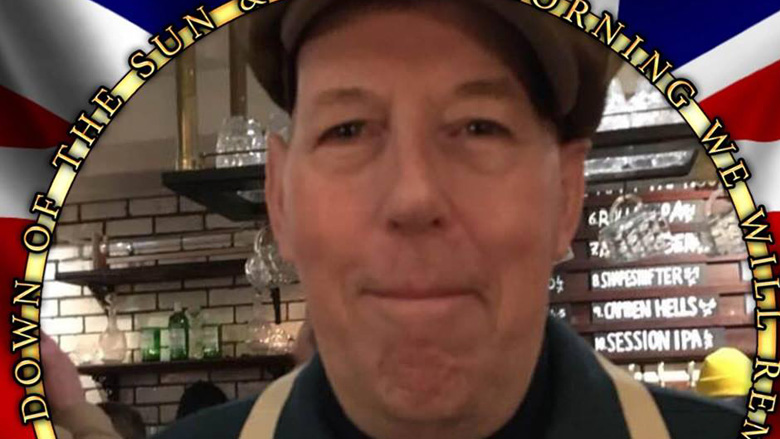Gary Haisman, one of the most renowned faces of British acid house music culture in the 1980s and the voice of the hit song, “We Call it Acieed,” has died at the age of 60. . Haisman’s death was confirmed in a tweet from English DJ Gary Crowley, who wrote, “Like everyone I’m extremely saddened to hear of the passing of clubbing legend & lovely fella Gary Haisman.
Had many a memorable night out with the big man & took this pic of him doing a PA to his single “We Call It Acieed” just as it was zooming up the charts. RIP Gary….”
Haisman’s cause of death has not been made public. His sad passing was announced on November 29.
1. Haisman Has Denied His Hit Song Avocated the Use of Drugs
Haisman’s hit single was the double-track, “We Call it Acieed/Trance Dance.” The song was featured on D Mob’s 1989 album, A Little Bit of This, a Little Bit of That. Haisman was one of three other performers to attain No.1 with a song that featured on the album. The others were LRS and Cathy Dennis. Haisman said in an interview that he had been working as a club promoter when he was asked to perform on the track. Haisman said, “Why not? Another string to the bow etc… It wasn’t really an acid record but it was, I would term, on a par with Mr. Blobby… Then after that we just went absolutely nut nut.” During the same interview, Haisman denied that the song advocated the use of drugs.
2. In His Later Years, Haisman Had Been Working as Decorator

Facebook/Gary Haisman
Haisman was a native of Buckinghamshire, England, and, according to his Facebook page, was an avid fan of Chelsea Football Club. In the Intro section to his page, Haisman calls himself as “Reformed lunatic allegedly.” In his About section, Haisman writes that he is “Totally confused.” Haisman wrote on his LinkedIn page that he had been working as a decorator in the Slough-area, outside of London since April 1993.
3. Haisman Has Been Described as ‘The Man Behind D-Mob’
Record producer Terry Farley told Rolling Stone in a December 2017 feature that he went to an infamous 1980s London nightclub, Shoom, was with Haisman. Farley said, “The first time I got taken to Shoom was by a guy called Gary Haisman. He was the man behind D-Mob. He had a big pop hit with a record called “We Call It Acieeed.” He was standing there screaming “Acieeed!” really loudly, which was quite frightening at first. It was very intense.” In a separate February 2016 feature with Vice, Farley referred to Haisman as “a mad character” ‘who ran numerous one off dance night-clubs throughout London during the 1980s.
In December 2017, the English writer Arwa Haider said that she attended a 30th anniversary party for Shoom. There she met Haisman, describing him as a “jovial 50-something… who happened to have been the voice of We Call It Acieed. I hugged this heroic stranger by the dancefloor, feeling star-struck and smiley.”
4. Haisman Was One of the Innovators of the Phrase, ‘It’s All Gone Pete Tong’
Haisman was one of the innovators of the phrase, “It’s all gone Pete Tong,” according to Pete Tong. The phrase, which is London-rhyming slang for, “It’s all gone a bit wrong,” is a hugely common expression and was even the inspiration for the title of a major movie. A few days before Haisman’s death, Pete Tong told the NME that the orginators of the phrase were the writers for the music magazine, Boys Own, in which he namechecks Haisman, along with Terry Farley as well as Andrew Weatherall.
5. Haisman Was ‘Treated Like Royalty’ When He Traveled Outside of London
Terry Farley is quoted in the book, “The Record Players: DJ Revolutionaries” as saying that Haisman was “treated like absolute royalty” in the 1980s when the pair made a trip to Wigan in the north west of England during the 1980s. Farley described it as being completely different to the trips the pair made going north in support of their soccer team, Chelsea. Farley said of those trips, “I’d been up north a few times by then, with Chelsea, and it had been disastrous. You’d get the train bricked, you’d get murdered up there, so I couldn’t believe how friendly they were at Wigan.” In the book, The True Story of Acid House: Britain’s Last Youth Culture Revolution, Farley described one such trip as traveling to Manchester to see Manchester United play Chelsea. The pair, and a group of others, traveled to Manchester the night before the game to visit the famous Hacienda nightclub.
READ NEXT: Michigan School Teachers Admit to Being Porn Stars on the Side